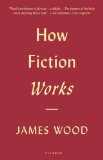In an essay written for The Millions, Charles Finch considers the “genius of James Wood, the literary critic at The New Yorker, and how it influenced the novel I’m about to publish.” But he also references John Updike in praising Wood’s ability to closely read a text and to “re-describe” what he reads.
 “In the last ten or fifteen years precision of language has become the password that marks out serious writers of fiction. (In this respect, though in fewer and fewer others, John Updike’s influence remains enormous.) There aren’t many literary novelists at the moment who are content to be plainspoken, and those who are, Kazuo Ishiguro for instance, have clear narrative motives for the choice. Instead, when you open almost any well-regarded novel today it will have long passages of precisely poetic prose, full of surprising and carefully curated language.”
“In the last ten or fifteen years precision of language has become the password that marks out serious writers of fiction. (In this respect, though in fewer and fewer others, John Updike’s influence remains enormous.) There aren’t many literary novelists at the moment who are content to be plainspoken, and those who are, Kazuo Ishiguro for instance, have clear narrative motives for the choice. Instead, when you open almost any well-regarded novel today it will have long passages of precisely poetic prose, full of surprising and carefully curated language.”
Finch later writes, “Of John Updike, whom I mentioned earlier, Wood has written’he is not, I think, a great writer, and the lacuna is not in the quality of his prose but in the risk of the thought.’
“The risk of the thought. That phrase has settled in my brain. The Last Enchantments [Finch’s own novel] is a relatively conventional story about an American abroad at Oxford, where he makes a break with his past life, meets new people, and falls in love. These could be the elements of a radical book or a safe one, a good one or a terrible one. I don’t personally think it’s terrible, but it may be safe. . . .”
Here’s the full article: “Winning Over James Wood”
